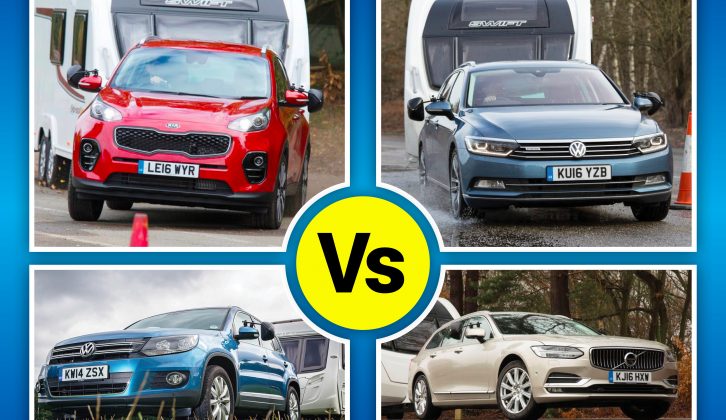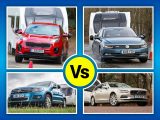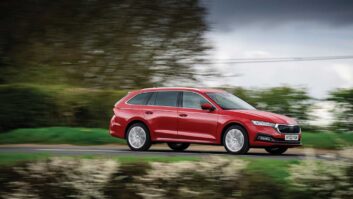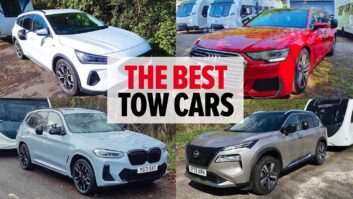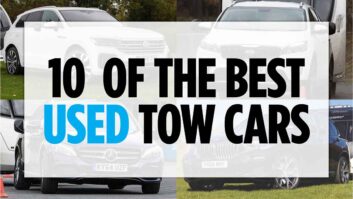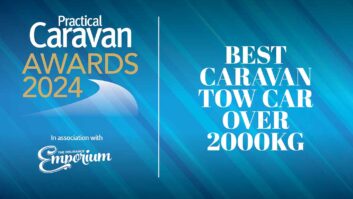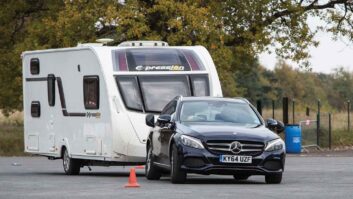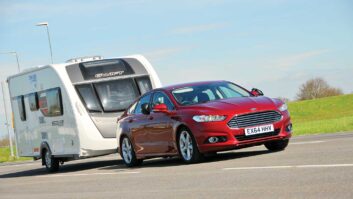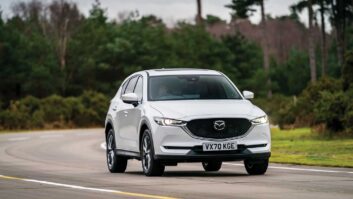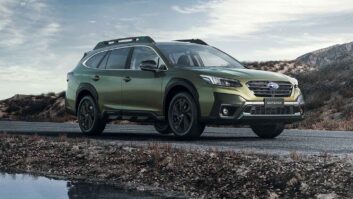When you first start caravanning, your priorities as a car buyer change.
Towing makes up only a fraction of our time behind the wheel, but it places so many more demands on car and driver that it can come to dominate our thinking when choosing a car.
To many caravanners, an SUV is the ideal tow car. Big, heavy and powerful, a large SUV seems to tick most of the important boxes when looking for a car to tow a caravan.
And in my book the best upmarket SUVs, like the Land Rover Discovery and Mercedes-Benz GLS, are the ultimate tow cars.
But if you are considering a more modestly priced mainstream SUV, many of us will be just as happy – if not more so – with an estate car.
SUV vs estate
Why? Well, if you’re anything like me, then stability is what you look for above all else in a tow car.
And estate cars have a lower centre of gravity than 4x4s, which helps make them secure and composed while towing.
What’s more, as estates don’t need to drive off Tarmac as well as on it, their suspension is designed to work exclusively on the road.
Having performed lane-change tests with all kinds of cars over the past decade or so, I’d say that estate cars generally handle this kind of test better than an SUV.
There are good and bad examples of both types but, as a rule of thumb, estate cars have the edge. And in terms of overall wins at our very own Tow Car Awards, the score stands at four-three in favour of estate cars.
A question of space
Then there’s practicality to consider. An SUV is hardly impractical, but an estate generally has more luggage space.
Take the Volkswagen Passat Estate and the Volkswagen Tiguan. The Passat has a 650-litre boot, while the Tiguan’s measures 615 litres.
Or the Kia Optima Sportswagon, with its 552-litre capacity, comfortably more than the Kia Sportage‘s 503 litres.
An estate car’s load floor will sit lower to the ground, making loading up easier than with an SUV, too. A little more space and bit less back strain matters when you’re packing for a fortnight away.
Fuel bills should be lower, too, in part because estate cars punch a smaller hole in the air.
To compare the VW Passat and Tiguan again, the 2.0 TDI 150PS Passat returns 67.3mpg on the combined cycle, compared with 58.9mpg for the Tiguan (or 50.4mpg for the four-wheel-drive version).
Ready for all conditions?
On the other hand, if you tow in all weathers (and let’s face it, you could get pretty awful weather even at the height of summer), there’s a clear benefit to sending power to all four wheels.
It’s not just about towing away from a muddy campsite under your own steam – simply pulling away cleanly from junctions is a lot easier if the engine’s torque is spread between four wheels rather than two.
What’s more, an SUV will generally have a higher kerbweight and so better outfit matching ratios than an estate car.
While the 2.0 TDI 150PS Passat has a kerbweight of 1505kg, the Tiguan with the same engine and 4Motion four-wheel drive has a kerbweight of 1660kg.
It’s also worth considering resale values. Over recent years the market share of traditional hatchbacks, saloons and estate cars has declined, with buyers preferring the more adventurous looks and high-up driving position of crossovers and SUVs.
That’s true in both the new and used market, so an SUV will generally hang on to its value better than an estate.
Take the VW Passat and Tiguan one last time. What Car?‘s figures show the Passat will be worth 38% of the list price after three years and 36,000 miles, the Tiguan will hold on to 44% of the original price.
Still don’t know what tow car to buy?
Struggling to choose which is right for you? There is a third option, albeit one which UK car buyers seem reluctant to pick.
Four-wheel-drive estate cars like the Audi A6 Allroad, VW Passat Alltrack and Volvo V90 Cross Country combine the load-carrying capacity of a regular estate with the sure-footedness of a 4×4.
The best of this genre make brilliant tow cars. But even with a raised ride height and some off-roader styling cues, they don’t match a true SUV’s go-anywhere image. Perhaps that’s why this type of car remains a niche.
At the risk of a ‘horses-for-courses’ cop out, there’s no one answer as to whether an estate car or SUV is best.
It really does depend on the weight of your caravan, whether you tow all year, and how much luggage you tend to take with you.
But while it may not be as fashionable as a crossover or SUV, there are many strong reasons for choosing an estate car instead.
Still struggling? There is a third option, albeit one which UK car buyers seem reluctant to pick
